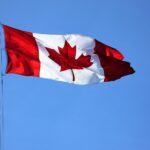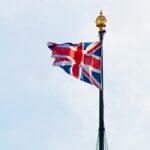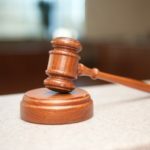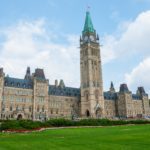Canadians voted federally in September, and Albertans head back to the polls in October for municipal elections. But who has the right to vote in these elections? The right to vote is the foundation of democracy, and democracy cannot be established without it. Voting allows individuals to affect … [Read more...]
A Few Facts on … Equalization
Let's fact check a few common misconceptions on equalization and transfer payments. The terms “equalization” and “transfer payments” have been floating around in the news recently. The sheer volume of information thrown at us makes it difficult to figure out what is fact and what is … [Read more...]
A Primer on Municipal Law in Alberta
With local elections approaching, it’s a good time to brush up on municipal law and government in Alberta. Municipal governments play an important role in shaping Albertans’ daily lives – from taxes to transit, bike lanes to bylaw enforcement, and development permits to dog licenses. Albertans go … [Read more...]
Royal Families Around the World
Around the world, monarchs hold different roles in government and more. Canadians live in a “constitutional monarchy”. So, we are somewhat familiar with how our system has evolved to the point where the Queen is mainly a figurehead at the top of our government. Over many centuries, the British, and … [Read more...]
What Needs to be Done if Canada Wants to Remove the Monarch?
Canada severing ties with the Royal Family requires amending the Constitution and reviewing treaties signed with Indigenous Peoples. In 1931, Canada became part of the British Commonwealth. It remains one of 54 Commonwealth nations to this day. Canada is a constitutional monarchy, which means it is … [Read more...]
Good Behaviour and Tenure of Supreme Court Justices in Canada and the United States
The death of Justice Ruth Bader Ginsburg, in September 2020 at the age of 87, and the appointment of Justice Amy Coney Barrett to the Supreme Court of the United States, where she can serve for decades, prompted me to write this article. The Supreme Courts of Canada and the U.S. are the courts … [Read more...]
The Use of the Peace, Order and Good Government Clause in Canada’s Constitution
Recent events in Canada have caused a resurgence of reliance on the Peace, Order and Good Government (POGG) clause in section 91 of The Constitution Act, 1867. When federal and provincial governments seek to pass legislation, they must have authority under section 91 (federal government) or 92 … [Read more...]
The Emergencies Act
When I agreed to write about the Emergencies Act, I had no idea that I would end up doing so at a time when the federal government was actually considering resorting to this never-before-used legislation. But with the arrival and spread of COVID-19 in Canada, this Act is an option the government has … [Read more...]
The Rise of the Digital Robber Barons: Is government up to the task at hand?
Given Canada’s history, we can anticipate that any plans for the federal government to use its “super powers” could erode our civil liberties. We must vigilantly protect fundamental rights and look to the courts to affirm, and in some instances extend, the reach of our Charter protections should … [Read more...]
Charter Notwithstanding: Section 33
33 (1) Parliament or the legislature of a province may expressly declare in an Act of Parliament or of the legislature, as the case may be, that the Act or a provision thereof shall operate notwithstanding a provision included in section 2 or sections 7 to 15 of this Charter. Section 33 of the … [Read more...]











